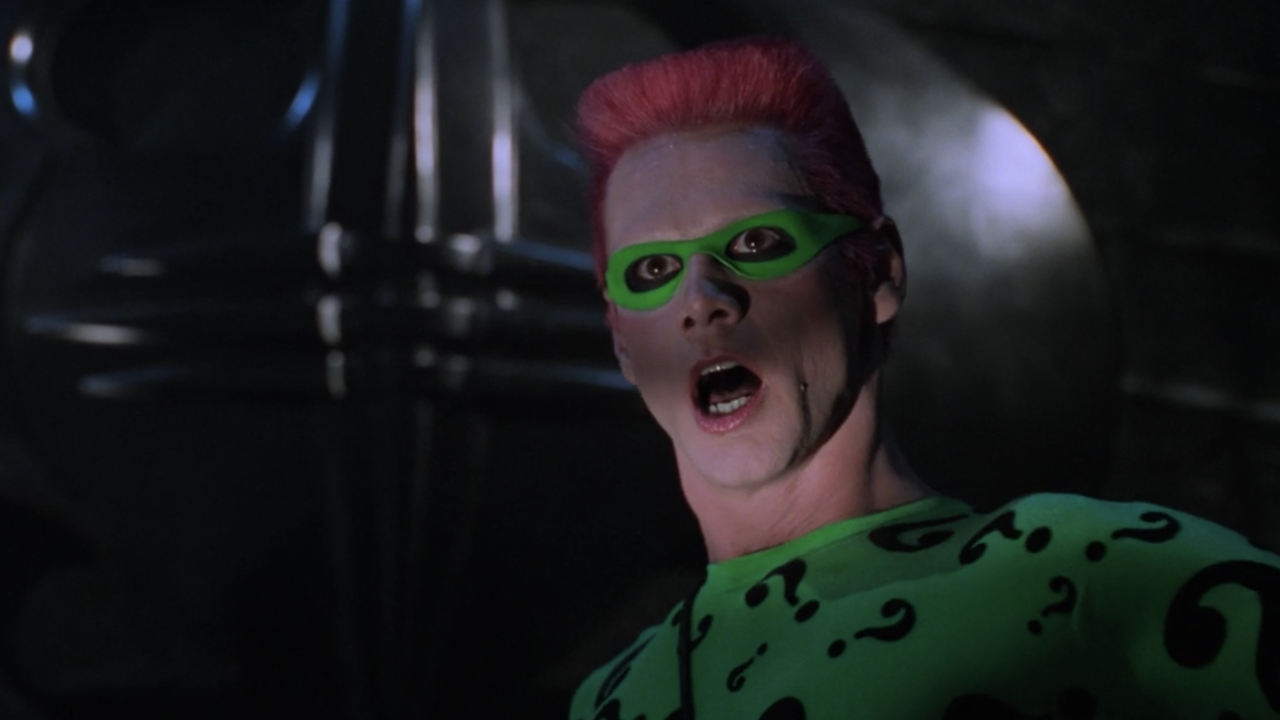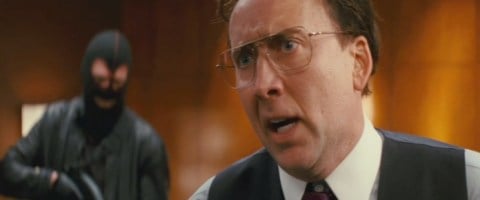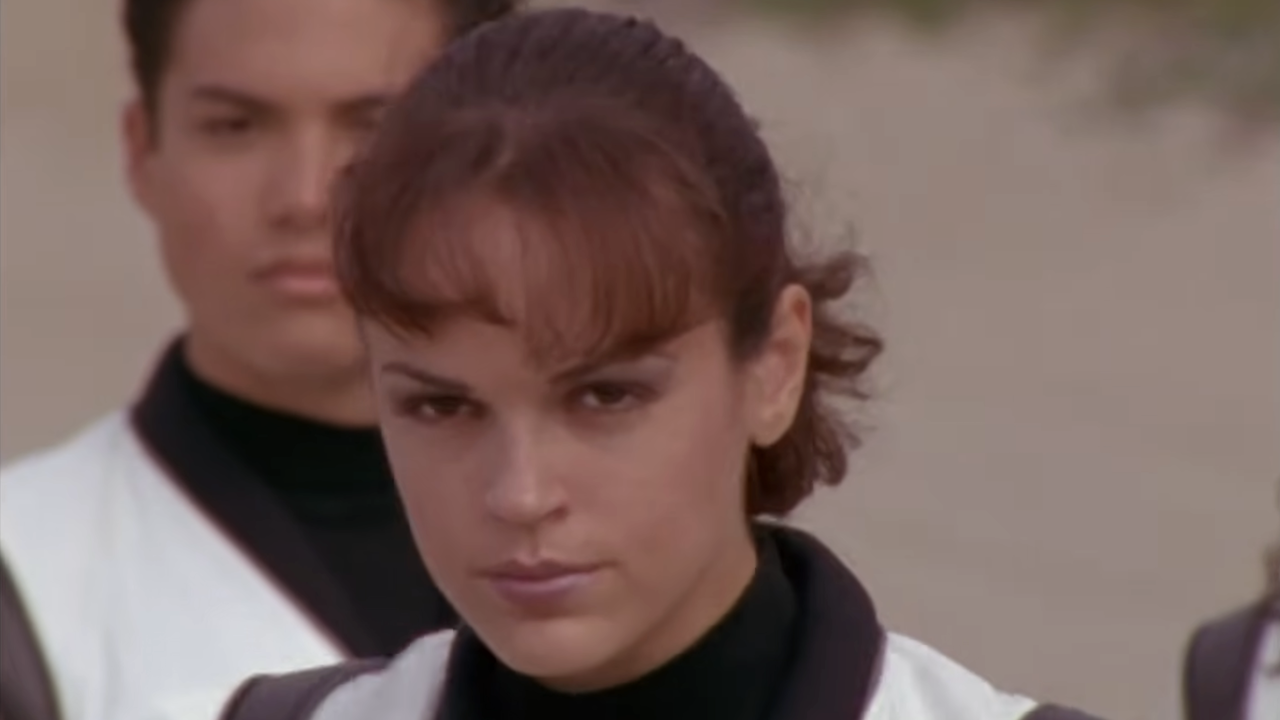Joel Schumacher Says He's Glad He's Not A Critical Darling

Your Daily Blend of Entertainment News
You are now subscribed
Your newsletter sign-up was successful
Regardless of what you think of Joel Schumacher and his long, incredibly varied career, which includes the likes of St. Elmo's Fire and Tigerland along with Batman & Robin and 8 MM, he is a fascinating person to talk to. He's not just candid, like a lot of directors with long careers behind them are, but he's talkative and a little rambling, willing to talk about just about anything and even bringing up subjects you didn't even think to ask. I got on the phone with him while he was walking along the High Line in Manhattan, and though he was about to meet friends at the club on the top of the Standard Hotel, he stayed on the phone with me for 45 minutes until I finally told him I had to cut him loose.
The occasion for our interview was Trespass, the new home invasion thriller he has out in theaters this weekend and soon to hit DVD and VOD. But as you can tell, we talked about a lot of other stuff, including his respect for German auteur Michael Haneke, the poor critical reception of St. Elmo's Fire back in the day, the fact that the movies he makes our products, and just what it will take to keep him from stepping behind the camera. For his equally frank thoughts on what he did with the Batman franchise and where it went after him, check out this article. For everything else, take a look at the interview below.
How do you make a home invasion movie these days, when the genre has been skewered in movies like Michael Haneke's Funny Games?
Well, Michael Haneke is one of my favorite directors, and I loved the German version very much. A lot of his films deal with ultimate nihilism. And this doesn't. I also felt this was at a particular time when there are too many rich and too many poor in this country, and the middle is shrinking. There's a class warfare going on here. Eventually, when a civilization creates too many have-nots, they will eventually rise up and take what the haves have.
I looked at it as two families that are on two sides of the same coin. Both Ben Mendelsohn and Nic Cage are two men who have overreached for the American dream, one legally, one illegally. They've reached too far, and they now have to face the music. I also thought the family was very representative of what's happened through our technology and through our times. When the movie begins there are three people living totally separate lives in that house and not connecting at all. Of course when life and death gets on the line, everything changes.
You're reuniting with Nicolas Cage, and you're casting him in a role we're not used to seeing him in, where he's not exactly a man of action. Did you want to play with his reputation in that way?
We did that in 8 MM. He plays a very on the surface average guy who gets spun into a world of horror, and he becomes someone that he never felt he would be. I felt the father in this piece was also spun into a world of horror. Nothing more horrific than thinking your wife and child will be murdered. He becomes someone he never thought he would be. Everyone in the film does. We all like to think that when the boat is sinking we will help all the senior citizens and children and pregnant women off before we help ourselves. But we don't know who we will be in that situation.
Your Daily Blend of Entertainment News

Schumacher has a tendency for tangents, but fascinating ones. Here are two of them, and no, they don't really have anything to do with my questions.
I love movies with big effects, I love movies that are fantasies-- I am a pop culture sponge, I love all kinds of movies from the tiniest French arthouse brooding film and Michael Haneke films to a lot of great directors. But I also love popcorn movies. I'm the guy who wrote Car Wash. Pop culture is, for me, the culture. I know all about history and art and all that stuff, which is great to know. But it was the, and this is now. And pop culture is always the culture of now.
St. Elmo's Fire & Lost Boys, which really kicked off my career, deal with dark circumstances sometimes. St. Elmo's Fire didn't get one good review in the United States. Nobody believes that. Even critics now who call it a watershed movie and talk about it glowingly and even interview me about it. But the audience got it. And I never planned to make movies for critics. I don't know how it happened. the odds are impossible! They're totally and completely impossible. I'm the luckiest guy in the world. It's much better to be underestimated than overestimated. I don't know what you get from that, because you can only disappoint. When you start a career and you're not a critic's darling, you don't depend on that. I know people who, the first movie they made out of the box, they were geniuses. And then they made a second film and perhaps they disappointed someone, and then they're crucified. It happens with second novels sometimes too.
So what is your measure of success for a film?
When you make mass entertainment it's millions and millions of people, and you get used to hearing every opinion in the world. And that's what it's there for. Making a movie is like raising someone else's child. It's only my movie when I'm making it. It's a product for someone else, and you have to give ti away. And ultimately you give it up to the audience, and the audience decides what happens.
A lot of filmmakers hesitate to talk about movies as products.
Well anybody that's going to write a check for me to make a movie, I honor them and admire them but do not pander to them for one second. I believe in what I believe in, and I fight for what I like. But you learn this early on as a director, you have to give it up at some point, you have to give it away. Ultimately you give it up to an audience, but before that you have to give it to the people who paid for it. And they have an expectation of making some kind of profit for whatever money they put up. It's show business, it wasn't show art, although you can have an artistic film that's successful.
I don't want to feel my best work is behind me. Hopefully I haven't made my best film yet. That's the dream. And I'm lucky to just have jobs. There are so many people from my peer group who can't get work. Leaving Warner Bros. and making small films and not worrying about how much money I was going to make paid off for me big time. People know I can make a small budget film and make some money and get an interesting script. I' going to keep working until my agent calls me and says no one on the planet will ever make a movie with you as long as you live.
(Image via lev radin / Shutterstock.com)
Staff Writer at CinemaBlend

